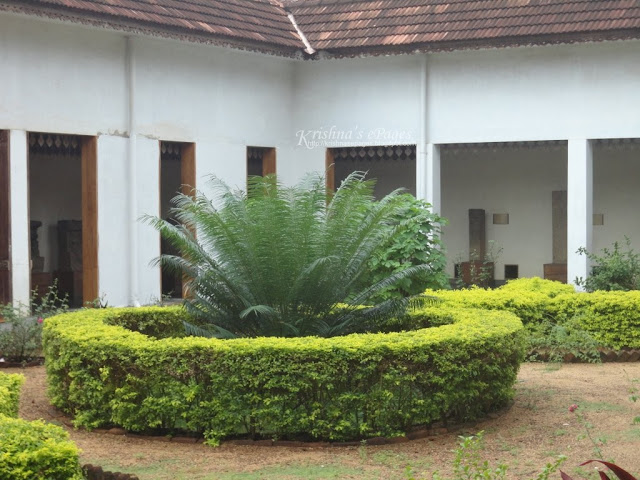Padmanabhapuram is the former capital of the erstwhile Travancore kingdom. After 1790, the capital was shifted to Thiruvananthapuram, Kerala. A magnificent wooden palace of the 16th century. The palace was constructed around 1601 AD by Iravi Varma Kulasekhara Perumal who ruled Venad between 1592 and 1609. Though the palace is situated in Kanyakumari district of Tamilnadu State, it comes under the Government of Kerala's administration.
Mantrasala or Council Chamber. The building displays a simplicity & purity of the styles of architecture the pointed gables, the dormer windows, & long corridors. The Mantrasala is meant to hold discussions with ministers & prominent citizens. On the southern side is the dining hall to accomodate 1000 persons ata a time. The palace occupies the centre of the Padmanabhapuram fort.
Ottupura (Dining Hall) The kinds of Travancore were known for their generous hospitality. Over 2000 peoples were served free means in this grand dining hall on a daily basis. Each storey of this two storey building is built to accommodate one thousand people at a time. The huge Chinese jars which were used to store pickles for the feast and exhibited in the ground floor
Thai Kottaram also known as Darbhakkulangara Kottaram. The Thaikottaram is the oldest palace amongst the Padmanabhapuram palace complex. It was built during the reign of Ravi Varma Kulasekhara Perumal (AD 1592-1610). It was constructed in the traditional 'Nalukettu' style. The 'Ekantamandapam' the open varandah in this palace contains the 'Kannithoonu' a ceiling supporting pillar in one piece between base and capital carved with artistic affluence. Built of jack fruit tree wood it has the most exquisite carvings one will ever see. Carvings have been done in the ethnic Kerala style. The ritualistic 'Kalameshuthu', and other ceremonies for the appeasement of goddesses were done in this prayer hall. The flooring of the hall which has withstood time attracts special attention. A tunnel route connecting the Thaikottaram with the Charottukkottaram situated over one kilometer away starts near the courtyard. It was used in times of war/danger to the royal family.
Heritage Museum - The concept of Heritage Museum aims at the presentation of the extinct objects of simple societies highlighting implication of subsistence and patterns of all aspects of Kerala culture.
This monument is the domestic apartment in the traditional style of a 'Nalukettu' with a 'Nilavera'. A heritage museum is arranged in this traditional Nalukettu. The house hold articles and utensils which were the past and parcel of day today life of a bygone generation but now extinct due to the development of most modern scientific technology are exhibited in the Nalukettu
This monument is the domestic apartment in the traditional style of a 'Nalukettu' with a 'Nilavera'. A heritage museum is arranged in this traditional Nalukettu. The house hold articles and utensils which were the past and parcel of day today life of a bygone generation but now extinct due to the development of most modern scientific technology are exhibited in the Nalukettu
Location
Nearby Thucklay, Kanyakumari Dist., Tamilnadu, INDIA
Route
. Trivandrum/Thiruvananthapuram-Thucklay-Padmanabhapuram Palace - 55 KM
. Nagercoil-Thucklay-Padmanabhapuram Palace - 17 KM

















































